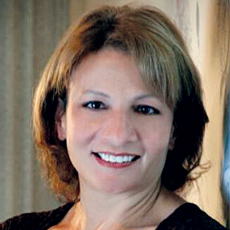
We are all on the same voyage, one that took us through uncharted territory and into the Land of Payment Overhaul. We have made it safely ashore and are working hard to understand the society and adapt to their way of life.
Just over a month ago, we accepted and adapted to the new Medicare payment system, somewhat optimistically called the Patient-Driven Payment Model. I say “optimistic” because some providers assume since they’re not being directly paid for therapy minutes anymore, less therapy = better reimbursement.
Most of our patients would disagree. Limiting therapy on the basis of payment is just the same as over-delivering on the basis of payment, and the latter is why this change occurred.
I took a trip in September just before the changes took effect, because I knew it was then or never. Visiting Spain made me realize how much of the world is alike, how much is different, and how I can translate what I learned into my life back home.
This New World Order (aka PDPM), much like H. G. Wells originally imagined, is supposed to be a confluence of ideas and terminology bringing peace and order to the world of healthcare reimbursement. It’s the U.N. of Healthcare. But it comes with rumors and misleading information about who is responsible and what should be delivered for the changes and how to manage them.
The reason Medicare reimbursement changed (and the reason any new rules and regulations occur in any situation): abuse and fraud. We all know about the bad actors who promoted high therapy minutes to maximize revenue at the expense of patients, at the expense of their consciences and at the expense of the law.
The reason the original PPS went into effect was not to ensure that everyone got exactly 720 minutes of therapy. It was to financially reward those entities who provided the most one-on-one treatment to those who need it. Over the two decades we worked with that system, we saw it adulterated and bastardized into something that was nearly abusive and often fraudulent. Chances are, your patient who will be signing up for hospice tomorrow doesn’t need that last 53 minutes of therapy today.
The new PDPM system requires all clinicians who come into contact with the Medicare patient to be specifically aware of that patient’s needs. (It’s called “Patient-Driven” for a reason.) The first clinician who meets the patient as they roll through the door needs to know if the patient can swallow, needs to know what the cognitive level is, needs to get the right diagnoses, and needs to make sure the patient gets restorative programming to maximize the revenue inherent with that admission.
Does that swallowing determination have to be done by a Speech Language Pathologist? No, it can be done by any clinician who can read a chart. The hospital should be sending the record of what the diet order is and what the patient’s capabilities are. Does the SLP have to do the BIMS? No, it can be done by any clinician who meets the patient on the day of admission. (“What year is it?” “Sock, blue, bed”? See Section C.) These questions can be asked by anyone who encounters the patient.
Going to another country on vacation is similar to encountering this New World Order. What’s the language? Can I get a map? How does my experience in other areas relate to what I’m encountering now? I lived in that other realm for 20 years, do I have to learn another culture now?
PDPM relates to our former PPS system in that there are categories that dictate what we will be paid, but instead of 66 categories, there are 60,000. There is no reason to attempt to remember even some of those categories, only to adhere to them. We need to do our best to get the diagnoses right, make sure the comorbidities are complete, get the Nursing, PT, OT, SLP, and NTAs right, and let the software do its work.
Navigating the world of PDPM is our job and our commitment and we will be doing it for a long time. There will likely be adjustments to the formula as time passes, as there were revisions to RUGs over the years. We are nothing if not adaptable and will continue to work for the benefit of our patients. Their goals are our goals, and now that Medicare is more equitable, those goals will be more achievable.





